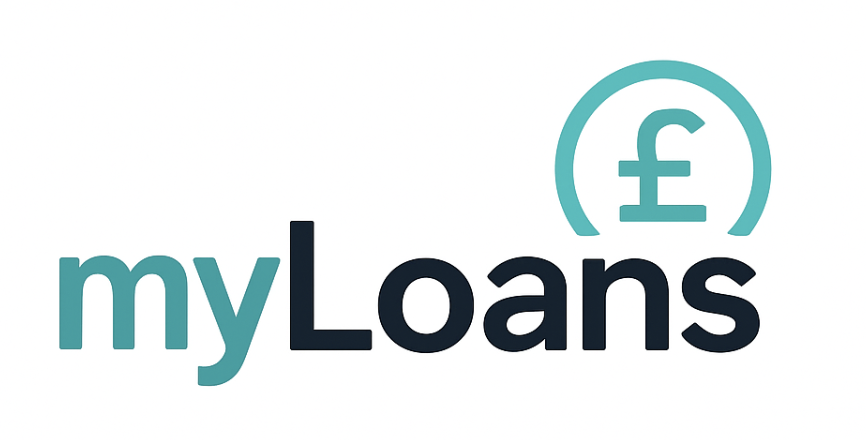Disclaimer: This page is for information purposes only and does not constitute financial advice. Always check the FCA Register to ensure a lender is authorised before borrowing. If you are struggling with debt, free support is available from StepChange, National Debtline, and Citizens Advice.
What Are Personal Loans?
A personal loan is one of the most common ways to borrow in the UK. They are usually unsecured, meaning you don’t need to offer your home or car as collateral. Lenders instead base decisions on your credit history, income, and affordability.
Because they are unsecured, personal loans are widely accessible — but often carry higher interest rates than secured loans.
👉 For impartial guidance on borrowing safely, see MoneyHelper’s loan advice.
Pros and Cons of Personal Loans
Like any form of borrowing, personal loans have benefits and drawbacks.
Advantages
-
Flexible use (debt consolidation, home improvements, emergencies)
-
Predictable repayments with fixed-rate options
-
Available from banks, building societies, and online lenders
Disadvantages
-
Higher rates than secured loans
-
Approval depends on credit score and income
-
Risk of fees for missed or early repayments
👉 See also: Alternatives to Personal Loans
How Much Can You Borrow?
Personal loan limits vary, typically between £1,000 and £25,000, with terms from 1–7 years. Your actual offer depends on:
-
Credit score – higher scores mean lower rates and larger loan amounts (check with Experian or Equifax).
-
Income stability – lenders want assurance of affordability.
-
Lender criteria – each provider has its own policies.
💡 Tip: Compare multiple offers and never borrow more than you can comfortably repay.
Types of Personal Loans
-
Fixed-Rate Loans – predictable monthly repayments
-
Variable-Rate Loans – lower starting rate, but payments can increase
-
Secured Personal Loans – require collateral, usually lower APRs
-
Unsecured Personal Loans – no collateral, but higher APRs
👉 Read more: Comparing Unsecured Personal Loans: A Guide
Common Uses of Personal Loans
Borrowers use personal loans for many purposes:
-
Debt consolidation → Personal Loan Debt Consolidation UK
-
Emergency expenses → Emergency Loans UK 2025
-
Home improvements → Home Improvement Loans UK
-
Medical costs → Medical Loans UK
-
Education or training → Education Loans UK
-
Travel → Holiday Loans UK
Comparing Lenders
Each lender has different eligibility rules, interest rates, and repayment terms.
Start with:
💡 Use our guide: How to Use a Personal Loan Calculator to plan your borrowing.
Personal Loans for Specific Borrowers
Alternatives to Personal Loans
Personal loans are not always the cheapest option. Consider:
-
Credit cards – low-interest or 0% balance transfer cards (see MoneyHelper’s guide).
-
Credit unions – community-based, capped rates.
-
Secured loans – lower APR but risk to assets.
-
Peer-to-peer lending – FCA-regulated, sometimes competitive rates.
-
Payday loans – a last resort, and among the most expensive forms of borrowing → Payday Loans UK Guide.
Why Trust My Loans?
✅ Independent content for UK borrowers
✅ Transparent breakdown of rates, eligibility & risks
✅ References to FCA, MoneyHelper, Citizens Advice & StepChange
✅ Written for clarity, not jargon
Our mission is to help you borrow with confidence while avoiding costly mistakes.
Personal Loan Alternatives
Before committing to a personal loan, it’s worth considering other options that might better suit your needs. Exploring different financial products can help you find the most cost-effective and appropriate solution for your situation.
Credit Cards
For smaller expenses, a credit card with a low interest rate or a 0% introductory offer could be a better option. Credit cards provide flexibility and can be more convenient for ongoing expenses — provided you manage repayments responsibly to avoid high-interest debt.
👉 For impartial advice, see MoneyHelper’s guide to using credit cards wisely.
If you’re comparing credit as an alternative, you may also want to explore:
Home Equity Loans
If you own a home, a home equity loan or line of credit might offer lower interest rates compared to unsecured personal loans. These products allow you to borrow against the value of your property, potentially giving you access to larger sums of money.
However, they do require using your home as collateral. This means there’s a risk of repossession if you fail to make repayments. Always check that your lender is authorised on the FCA Register before proceeding.
For home-related alternatives, see:
Peer-to-Peer Lending
Peer-to-peer (P2P) lending platforms connect borrowers directly with individual investors. For those with good credit, these platforms can sometimes offer competitive rates and more flexible terms compared to traditional banks.
While P2P lending can provide a more personalised borrowing experience, it’s important to understand the risks. Platforms are regulated by the FCA.
👉 For more borrowing options beyond personal loans, explore our full guide: Short Term Loans UK – Pros, Cons & Key Features.
Final Thoughts
Personal loans can be a powerful financial tool when used wisely. But they’re not for everyone. Compare offers, read the fine print, and ensure you can afford repayments before applying.
If you’re struggling with debt, free advice is available from:
👉 Explore our related guides:
Personal Loan Debt Consolidation UK – Is It Right for You?
Juggling multiple credit cards, overdrafts, or loans can be stressful and expensive. A debt consolidation loan allows you to combine everything into a single monthly repayment, often at a lower interest rate. In 2025, UK lenders from high street banks to online...
Emergency Loans UK – How to Borrow Fast in 2025
When an urgent expense hits — like car repairs, medical bills, or a broken boiler — quick access to funds can be essential. In 2025, emergency loans in the UK provide a way to borrow fast, with some lenders offering same-day decisions and payouts. This guide explains...
Top 10 Personal Loan Providers UK 2025 – Rates, Features & Eligibility
The UK personal loan market in 2025 offers more choice than ever, with banks, supermarkets, online lenders, and credit unions all competing for borrowers. The best deal for you depends on your credit score, loan size, and repayment term — but comparing providers side...
Best Debt Consolidation Loans UK 2025 | Top Options
Managing multiple debts can feel overwhelming, especially with credit cards, overdrafts, and personal loans all charging different interest rates. A debt consolidation loan can simplify your finances by rolling everything into one fixed monthly repayment — often at a...
Best Bad Credit Loans UK 2025 – Top Lenders Compared
Having a poor credit score, CCJs, or past defaults doesn’t mean borrowing is out of reach. In 2025, several UK lenders specialise in products designed for people with bad credit — offering smaller loans, flexible repayment terms, and eligibility checks that won’t harm...
Home Repair Loans UK – How to Cover Unexpected Costs in 2025
A leaking roof, broken boiler, or urgent plumbing issue can quickly turn into an expensive problem — often when savings aren’t available. In 2025, home repair loans in the UK provide a way to spread the cost of essential fixes into manageable monthly repayments. This...
Green Energy Loans UK – How to Finance Eco-Friendly Home Improvements in 2025
Eco-friendly upgrades such as solar panels, insulation, heat pumps, and EV chargers can cut energy bills and boost property value — but they require a significant upfront investment. In 2025, green energy loans in the UK provide a way to spread the cost of sustainable...
Moving House Loans UK – How to Cover Relocation Costs in 2025
From deposits and removal vans to solicitor fees and new furniture, moving house in the UK can quickly add up to thousands of pounds. Not everyone has savings set aside to cover these costs upfront. In 2025, moving house loans in the UK provide a way to spread...
Education Loans UK – How to Fund Studies and Professional Courses in 2025
Not all education in the UK is covered by government student finance. Postgraduate degrees, professional qualifications, and private training often require self-funding — with tuition fees and course costs running into thousands of pounds. In 2025, education loans in...
Holiday Loans UK – How to Spread the Cost of Travel in 2025
Holidays can be some of the most rewarding experiences of the year, but they often come with a price tag that’s hard to cover upfront. From flights and hotels to all-inclusive packages and once-in-a-lifetime trips, the costs can add up quickly. In 2025, holiday loans...
Best Personal Loans UK 2025 – Top Lenders Compared
The UK personal loan market in 2025 is more competitive than ever, with high street banks, supermarkets, online lenders, and credit unions all offering products to suit different needs. Choosing the right provider can save you hundreds in interest and ensure...
Medical Loans UK – How to Finance Healthcare Costs in 2025
While the NHS covers most essential treatment, waiting lists, private care, and specialist procedures mean many people face out-of-pocket medical expenses. From dental work and fertility treatment to cosmetic surgery and urgent private healthcare, costs can run into...
Car Loans UK – Personal Loan vs Hire Purchase vs PCP in 2025
Buying a car in 2025 usually means more than just choosing the right vehicle — it also means deciding how to pay for it. In the UK, the three main options are a personal loan, hire purchase (HP), or personal contract purchase (PCP). Each has its own advantages,...
Home Improvement Loans UK – How to Finance Renovations in 2025
Planning a new kitchen, loft conversion, or energy-efficient upgrade can transform your home’s value and comfort — but the upfront costs are often daunting. In 2025, home improvement loans in the UK provide a way to spread renovation expenses into affordable monthly...
Bad Credit Personal Loans UK 2025 | Complete Borrowing Guide
Defaults, CCJs, or missed payments don’t have to shut you out of borrowing. In 2025, UK lenders still offer options for people with less-than-perfect credit — from credit unions and guarantor providers to online specialists. This guide explains how bad credit personal...

















